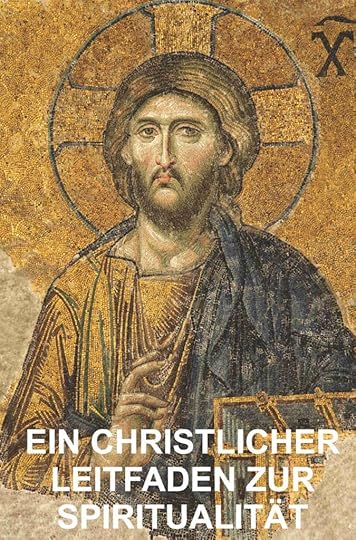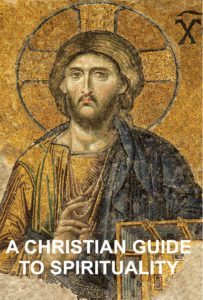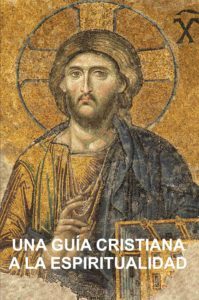Stephen W. Hiemstra's Blog, page 101
October 24, 2021
Oración Dia 48
Por Stephen W. Hiemstra
Padre Todopoderoso,
Te alabamos por lo que eres y por ser digno de nuestra adoración.
Atráenos a ti.
Reconcílianos con nuestros vecinos.
Que podamos poner nuestras coronas delante de ti y descansar sólo contigo.
En el poder del Espíritu Santo, abre nuestros corazones; ilumina nuestras mentes; fortalece nuestras manos en Tu servicio.
En el nombre de Jesús oramos. Amén.
Oración Dia 48
Ver también:
Prefacio de La Guía Cristiana a la Espiritualidad
Otras formas de participar en línea:
Sitio del autor: http://www.StephenWHiemstra.net
Comprar Libro: http://www.T2Pneuma.com
Boletín informativo: https://bit.ly/Priorities_2021
The post Oración Dia 48 appeared first on T2Pneuma.net.
Gebetstag 48

Vor Stephen W. Hiemstra
Allmächtiger Vater,
Wir loben dich dafür, wer du bist und dafür, dass du unseres Lobes würdig bist.
Ziehe uns an dich. Versöhne uns mit unseren Nachbarn.
Mögen wir unsere Kronen vor dich legen und nur bei dir ruhen.
In der Kraft deines Heiligen Geistes öffne unsere Herzen; erleuchte unseren Geist; stärke unsere Hände in deinem Dienst.
In Jesu Namens, Amen.
Gebetstag 48
Siehe auch:
Einleitung auf Ein Christlicher Leitfaden zur Spiritualität
Andere Möglichkeiten, sich online zu engagieren:
Autoren Seite: http://www.StephenWHiemstra.net
Herausgeber Seite: http://www.T2Pneuma.com
Mitteilungsblatt: https://bit.ly/Priorities_2021
The post Gebetstag 48 appeared first on T2Pneuma.net.
October 22, 2021
What is worship?

The twenty-four elders fall down before him who is seated on the throne and worship him who lives forever and ever. They cast their crowns before the throne, saying, Worthy are you, our Lord and God, to receive glory and honor and power, for you created all things, and by your will they existed and were created. (Rev 4:10–11)
By Stephen W. Hiemstra
If a spiritual discipline points us to God, then worship is the prince of the spiritual disciplines. In fact, we were made for worship (Calhoun 2005, 25).
Unfortunately, the Bible’s first picture of worship also pictures improper worship. Cain brought God some fruit; Abel slaughtered the first born of his flock and brought God the fat portions. God honored Abel’s sacrifice, but not Cain’s (Gen 4:3–5). Improper worship is like inviting your supervisor to your house and serving leftovers at dinner—you may not get fired, but it degrades the relationship.
One of the first deacons of the church, Stephen, was arrested in Jerusalem and was arraigned before the Sanhedrin. There, he accused them of limiting the access to God at the temple, of killing the prophets, of betraying and murdering Christ, and, therefore, of not keeping the law. Improper worship—limiting access to God—was Stephen’s first charge. For this and other things, they took Stephen out and stoned him (Acts 7:48–58).
Stephen’s complaint was not about altar sacrifices. When the Israelite people lived in Egypt, they needed to go into the wilderness to offer sacrifices, in part, because they sacrificed animals that were sacred to the Egyptians (Exod 8:26). The point of the sacrifice was to demonstrate loyalty to God by forsaking the typical idols of the day (Lev 17:7) [1]. However, over time the sacrifices lost their meaning, became routine, or, worse, started to look like divine bribes—improper worship [2]. Echoing the Prophet Isaiah (Isa 1:16), King David writes: “The sacrifices of God are a broken spirit; a broken and contrite heart, O God, you will not despise.” (Ps 51:17) The content of worship, not its form, is what makes worship proper or improver.
An important picture of proper worship is given in Revelation 4:10-11 where the twenty-four elders cast their crowns before the throne of God. In heaven, the elders are casting down crowns given them by God, yet they still humbly lay them down (e.g. Rev 2:10). On earth, a crown is a symbol (an idol) of our vanity—a conspicuous display of personal wealth, power, and authority; it does not have to be a golden tiara! When I cast my crowns at the feet of the king of kings, I am surrendering all my idols—money, power, and authority—to God. On earth as it is in heaven this is the ultimate act of worship.
How do we then properly lay our crowns before the Lord?
Proper worship is an idol crashing event [3]. In worship we demonstrate our loyalty to God by surrendering to God the idols that most typically capture our hearts—our money, our power, and our authority. For some, it will mean writing checks; for others it may be donating time; for still others it may be simply to show up at worship clean and sober. For most of us, it means bringing along our families. For all of us, it means joining in God’s praises. Worship is a smorgasbord of praise.
When we look beyond our pride and idols to God, we cast down our crowns and truly worship.
[1] For more discussion, see: (Hahn 2009, 150).
[2] For example, the Prophet Isaiah (Isa 1:13) writes: “bring no more vain offerings; incense is an abomination to me. New moon and Sabbath and the calling of convocations—I cannot endure iniquity and solemn assembly.” Likewise, the prophet Malachi writes: “When you offer blind animals in sacrifice, is that not evil?” (Mal 1:8)
[3] The prophet Mohammed (1934, 21.51–.66) wrote that Abraham’s father was an idol-maker. One day when his father was away, Abraham smashed all but the biggest idol in his shop. When his father returned and confronted him, Abraham told his father to ask the remaining idol what happened. His father replied—you know that idols cannot speak. To which Abraham responded—then why do you worship anything but the living God?
References
Calhoun, Adele Ahlberg. 2005. Spiritual Disciplines Handbook: Practices that Transform Us. Downers Grove, IL: IVP Books.
Hahn, Scott W. 2009. Kinship by Covenant: A Canonical Approach to the Fulfillment of God’s Saving Promises. New Haven, CT: Yale University Press.
What is worship?
Also see:
Preface to a Life in Tension
Other ways to engage online:
Author site: http://www.StephenWHiemstra.net
Publisher site: http://www.T2Pneuma.com
Newsletter: https://bit.ly/Priorities_2021
The post What is worship? appeared first on T2Pneuma.net.
¿Que es Adoración?

Los veinticuatro ancianos se postran delante de Aquél que está sentado en el trono, y adoran a Aquél que vive por los siglos de los siglos, y echan sus coronas delante del trono, diciendo: Digno eres, Señor y Dios nuestro, de recibir la gloria y el honor y el poder, porque Tú creaste todas las cosas, y por Tu voluntad existen y fueron creadas.” (Rev 4:10-11 NBH)
Por Stephen W. Hiemstra
Si las disciplinas espirituales nos señalan a Dios, entonces la adoración es el príncipe de las disciplinas espirituales. De hecho, hemos ido creado para el culto (Calhoun 2005, 25).
Desafortunadamente, el primero foto en la Biblia de culto también nos muestra un imagen de culto impropia. Caín trajo ofrenda del fruto a Dios; Abel mató el primogénito de sus ovejas y él trajo a Dios las partes de grasa. Dios honró el sacrificio de Abel, pero no lo de Caín (Gen 4:3-5). El culto impropia es como invitando su jefe en su hogar y lo sirviendo sobras a cenar—no se podría estar disparó pero se degrada la relación.
Uno de los diacones de la iglesia, Esteban, fue arrestado en Jerusalén y fue acusado antes la sanedrín. Allí, el los acuso de limitar el acceso de Dios en la templo, de matar los profetas, de traicionar y de asesinar Cristo, y entonces, de no guardar la ley. El culto impropia—limitar acceso de Dios—fue la primer cargo. Por esta y otra cosas, se llevaron a cabo Esteban y lo apedrearon (Acts 7:48-58).
La queja de Esteban no era los altar sacrificios. Cuando los Israelitas vivían en Egipto, ellos necesitaron a ir en el desierto a ofrecer los sacrificios, en parte, porque sacrificaban los animales que se eran sagrados a los Egipcios (Exod 8:26). El punto de los sacrificios era a demostrar lealtad a Dios por abandonar las ídolas que eran típicas del día (Lev 17:7) [1]. Sin embargo, en el tiempo estos sacrificios perdieron su significado, se convirtieron en rutina, o, más peor, empezó a parecer se como los sobornos divinos—impropia culto [2]. Haciendo eco el Profeta Isaías (Isa 1:16), el Rey David escribe: “Los sacrificios de Dios son el espíritu contrito; Al corazón contrito y humillado, oh Dios, no despreciarás.” (Ps 51:17 NBH) El contenido de culto, no su forma, es lo que hace la adoración propia o impropia.
Un cuadro importante de la adoración apropiada se da en Apocalipsis 4:10-11 donde el veinticuatro ancianos echan abajo sus coronas delante el trono de Dios. En el cielo,los ancianos echan abajo las coronas que les dio Dios, sin embargo, todavía humildemente se echan (e.g. Rev 2:10). Por la tierra, una corona esta un símbolo (un ídolo) de nuestra vanidad—una ostentación de la riqueza, poder, y autoridad personal; no se necesita ser una tiara de oro! Cuando yo echo mis coronas a los pies del rey de reyes, me abandono todas mis ídolas—la plata, poder, y autoridad—a Dios. “En la Tierra Como en el Cielo”—es lo que el ultimo acto de adoración.
¿Cómo podemos entonces colocamos adecuadamente nuestras coronas delante el Señor?
La adoración apropiada es un ídolo-estrellarse evento [3]. En adoración, demostramos nuestra lealtad a Dios por abandonar a Dios los ídolos que mas típicamente captan nuestras corazones—nuestra plata, nuestro poder, y nuestra autoridad. Por algunos, se significa la emisión de cheques; para otros, puede ser el tiempo donado; para aún otros, puede ser simplemente para presentarse en la adoración limpia y sobria. Para la mayoría de nosotros, que significa traer a lo largo de nuestras familias. Por todos de nosotros, se significa a unirse en las adoraciones de Dios. La adoración es un smorgasbord de alabanzas.
Cuando buscamos fuera de nuestro orgullo y de los ídolos a Dios, nosotros echamos abajo nuestras coronas y ofrecer verdadera adoración.
[1] Por mayor discusión, vea (Hahn 2009, 150).
[2] Por ejemplo, el Profeta Isaías (Isa 1:13) escribe: .”No traigan más sus vanas ofrendas, El incienso Me es abominación. Luna nueva y día de reposo, el convocar asambleas: ¡No tolero iniquidad y asamblea solemne!” (Isa 1:13 NBH) Por simular manera, el Profeta Malachi escribe: “Y cuando presentan un animal ciego para el sacrificio, ¿no es eso malo?” (Mal 1:8 NBH)
[3] El Profeta Mohammed (1934, 21.51-.66) escribió que el padre de Abraham fue un fabricante de ídolos. Un día cuando su padre estaba fuera, Abraham destrozó todos los ídolos en la tienda sino el más grande. Cuando su padre regresó y enfrentó a él, Abraham dijo a su padre para pedirle al ídolo restante lo que pasó. Su padre respondió—ya sabes que los ídolos no pueden hablar. A lo que respondió Abraham—entonces ¿porque se adora cualquiera cosa otra que el Dios vivo?
Referencias
Calhoun, Adele Ahlberg. 2005. Spiritual Disciplines Handbook: Practices that Transform Us. Downers Grove, IL: IVP Books.
Hahn, Scott W. 2009. Kinship by Covenant: A Canonical Approach to the Fulfillment of God’s Saving Promises. New Haven, CT: Yale University Press.
¿Que es Adoración?
Ver también:
Prefacio de La Guía Cristiana a la Espiritualidad
Otras formas de participar en línea:
Sitio del autor: http://www.StephenWHiemstra.net
Comprar Libro: http://www.T2Pneuma.com
Boletín informativo: https://bit.ly/Priorities_2021
The post ¿Que es Adoración? appeared first on T2Pneuma.net.
Was ist Anbetung?

Vor Stephen W. Hiemstra
Fallen die vierundzwanzig Ältesten nieder vor dem, der auf dem Thron sitzt, und beten den an, der da lebt von Ewigkeit zu Ewigkeit, und legen ihre Kronen nieder vor dem Thron und sprechen: Herr, unser Gott, du bist würdig, zu nehmen Preis und Ehre und Kraft; denn du hast alle Dinge geschaffen, und durch deinen Willen waren sie und wurden sie geschaffen. (Rev 4:10-11)
Wenn uns eine spirituelle Disziplin auf Gott hinweist, dann ist die Anbetung der Fürst der spirituellen Disziplinen. Tatsächlich wurden wir für die Anbetung geschaffen (Calhoun 2005, 25).
Leider bildet das erste Bild der Anbetung in der Bibel auch unangemessene Anbetung an. Kain brachte Gott Früchte; Abel schlachtete den Erstgeborenen seiner Herde und brachte Gott die fetten Portionen. Gott ehrte Abels Opfer, aber nicht das von Kain (Gen 4:3–5). Unangemessene Anbetung ist, als ob du deinen Vorgesetzten zu sich nach Hause einladen und Essensreste servieren—du wirst vielleicht nicht gefeuert, aber es verschlechtert die Beziehung.
Einer der ersten Diakone der Kirche, Stephanus, wurde in Jerusalem verhaftet und vor dem Sanhedrin gebracht. Dort beschuldigte er sie, den Zugang zu Gott im Tempel einzuschränken, die Propheten zu töten, Christus zu verraten und zu ermorden und deshalb das Gesetz nicht zu halten. Unangemessene Anbetung—die Einschränkung des Zugangs zu Gott—war Stephanus erster Anklage. Dafür und für andere Dinge haben sie Stephanus herausgenommen und gesteinigten ihn (Acts 7:48–58).
Stephanus Beschwerde bezog sich nicht auf Altaropfer. Als die Israeliten in Ägypten lebten, mussten sie zum Teil in die Wildnis gehen, um Opfer darzubringen, weil sie Tiere opferten, die den Ägyptern heilig waren (Exod 8:26). Der Sinn des Opfers bestand darin, die Loyalität gegenüber Gott zu demonstrieren, indem man die typischen Götzen der Tag aufgab (Lev 17:7; Hahn 2009, 150).
Im Laufe der Zeit verloren die Opfer jedoch ihre Bedeutung, wurden zur Routine oder, schlimmer noch, sie begannen wie göttliche Bestechungsgelder auszusehen—unangemessene Anbetung (Isa 1:13; Mal 1:8). Widerhallen an den Propheten Jesaja (Isa 1:16) schreibt König David: “Die Opfer, die Gott gefallen, sind ein geängsteter Geist, ein geängstetes, zerschlagenes Herz wirst du, Gott, nicht verachten.” (Ps 51:19) Der Inhalt der Anbetung, nicht seine Form, macht die Anbetung angemessenen oder unangemessenen.
Ein wichtiges Bild der richtigen Anbetung wird in Offenbarung 4:10-11 gegeben, wo die vierundzwanzig Ältesten ihre Kronen vor dem Thron Gottes werfen. Im Himmel werfen die Ältesten Kronen nieder, die ihnen von Gott gegeben wurden, und legen sie dennoch demütig nieder (e.g. Rev 2:10). Auf der Erde ist eine Krone ein Symbol (ein Götzebild) unserer Eitelkeit—eine auffällige Darstellung von persönlichem Reichtum, Macht und Autorität; Es muss keine goldene Tiara sein! Wenn ich meine Kronen dem König der Könige zu Füßen werfe, übergebe ich alle meine Götzen—Geld, Macht und Autorität—Gott. “Wie im Himmel so auf Erden” (Matt 6:10)—dies ist der ultimative Akt der Anbetung.
Wie legen wir dann unsere Kronen richtig vor den Herrn?
Richtig Anbetung ist eine Götzenkrachende Veranstaltung. Der Prophet Mohammed (1934, 21.51.66) schrieb, dass Abrahams Vater ein Götzenmacher war. Eines Tages, als sein Vater weg war, zerschmetterte Abraham alle bis auf das größte Idol in seinem Laden. Als sein Vater zurückkehrte und ihn konfrontierte, sagte Abraham seinem Vater, er solle den verbliebenen Götzen fragen, was passiert sei. Sein Vater antwortete—du wiest dass Götzen nicht sprechen können. Worauf Abraham antwortete—warum beten Sie dann alles andere als den lebendigen Gott an?
In der Anbetung demonstrieren wir unsere Loyalität gegenüber Gott, indem wir Gott die Götzen übergeben, die unsere Herzen am meisten erobern—unser Geld, unsere Macht und unsere Autorität. Für manche bedeutet es, Schecks auszustellen; für andere kann es sein, Zeit zu spenden; für wieder andere mag es einfach sein, rein und nüchtern zur Anbetung zu erscheinen. Für die meisten von uns bedeutet es, unsere Familien mitzubringen. Für uns alle bedeutet es, sich an Gottes Lob zu beteiligen. Anbetung ist ein Smorgasbord von Lob.
Wenn wir über unseren Stolz und unsere Götzenbilder hinaus auf Gott schauen, werfen wir unsere Kronen nieder und beten wahrhaftig an.
Was ist Anbetung?Siehe auch: Einleitung auf Ein Christlicher Leitfaden zur Spiritualität Andere Möglichkeiten, sich online zu engagieren:Autoren Seite: http://www.StephenWHiemstra.net Herausgeber Seite: http://www.T2Pneuma.com Mitteilungsblatt: https://bit.ly/Priorities_2021The post Was ist Anbetung? appeared first on T2Pneuma.net.
October 19, 2021
Fairbairn: The Trinity Models Community, Part 2
 Donald Fairbairn. 2009. Life in the Trinity: An Introduction to Theology with the Help of the Church Fathers. Downers Grove: IVP Academic. (Go to part 1)
Donald Fairbairn. 2009. Life in the Trinity: An Introduction to Theology with the Help of the Church Fathers. Downers Grove: IVP Academic. (Go to part 1)
Review by Stephen W. Hiemstra
The centrality of John 13-17 in Fairbairn’s picture of the scarlet thread running through the understanding of the early church fathers of our life in Christ is both obvious and mysterious. It is obvious because these chapters contain some of Jesus’ last words before his crucifixion. It is mysterious, in part, because John skips things highlighted in the other Gospels, like Jesus’ prayer in the Garden and the last supper, and includes things, like the washing of the disciple’s feet, not included elsewhere (13-16). Jesus’ enigmatic discussion in the upper room about his relationship with the Father is probably the most mysterious narrative in the entire New Testament.
The complementary relationship between this upper room discourse and Jesus’ high priestly prayer suggests that John feels it important—a kind of Hebrew doublet. Fairbairn (28) writes:
“In the discourse, Jesus has laid out a picture of life as God intends it, and in the prayer, he asks his father to bring about the kind of life he has just described to the disciples.”
However, these are also some of Jesus’ last words making this a doublet that today would be written in red and underlined, so to speak. For this reason, these chapters got the attention of early church fathers. Summarizing, Fairbairn writes: “our sharing the Father-Son relationship is at the center of what it means for us to participate in God.” (37) And: “the doctrine of the Trinity is the gateway to understanding Christian life.” (50)
If you accept Fairbairn’s conclusions, entering the deep end of the pool theologically is clearly not optional . Fairbairn suggests that we were created to share in the life of the Trinity as evidenced by the early life of Adam and Eve in the Garden of Eden and by our creation in the image of a Triune God. Being created in the image of God sets humanity apart from plants, animals, and even angels (60) and sets humanity apart from them even after the fall.
But what does this life in the Trinity look like? Fairbairn (65) sees 4 obvious benefits to having fellowship with the Trinity:
Significance—our significance lies not in what we do, but to whom we belong (67);Peace—The peace of God is more than the absence of conflict, it shares a calmness even in the storms of life (69) and includes the tutorage of the Holy Spirit throughout (70);Work—our attitude towards work is transformed. The apostle Paul writes: “I worked harder than any of them, though it was not I, but the grace of God that is with me.” (1 Cor 15:10 ESV) To redeem work is to return to the Garden of Eden where our work began.Human relationships—If God loves humanity, then so should we and we see people differently (81).Fairbairn (224) writes:
“We are called to reflect the Father’s love for the Son, and part of the way we do that is by serving the least of the believers—the neediest, the ones who are the loneliest, the ones who suffer the most in this fallen world.”
Perhaps the most important contribution Fairbairn makes, in my estimation, is to our understanding the depth that sin has broken our relationship with God and neighbor. Sin, he writes, “is what happens when have two children in the same room with one toy” (87). This brokenness dominates who we are and how we relation to both God and neighbor. The curse of sin involves two parts: physical death and spiritual death—separation from God (98). We are twisted to the point that we do not even recognize our own depravity. Adam and Eve had no reason to doubt God’s word in the garden and no reason to trust the serpent’s words: “For God knows that when you eat of it your eyes will be opened, and you will be like God, knowing good and evil.” (Gen 3:5 ESV) The word, know, here in Hebrew (yada) means more than simply knowledge, it implies being able to decide (93). In order words, Adam and Eve not only wanted to understand good and evil, they wanted to determine what is good and evil for themselves—to play god.
It is only by fully understanding the depth of our own depravity, we can appreciate the need for God’s promise, the incarnation of Christ, and the gift of redemption. The lost sense of sin is accordingly at the heart of the modern and postmodern shamelessness and inattention to faith.
As is always the case with good books, it is not just the interesting details but how they hang together to make the text sing. This is a text that clearly sings.
Fairbairn: The Trinity Models Community, Part 2Also see:Niebuhr Examines American Christian Roots, Part 1 Friedman Brings Healing by Shifting Focus from Individuals to the Family Books, Films, and MinistryOther ways to engage online:Author site: http://www.StephenWHiemstra.netPublisher site: http://www.T2Pneuma.com Newsletter: https://bit.ly/Priorities_2021The post Fairbairn: The Trinity Models Community, Part 2 appeared first on T2Pneuma.net.
October 18, 2021
Sabbath Rest: Monday Monologues (podcast), October 18, 2021

By Stephen W. Hiemstra
This morning I will share a prayer and reflect on Sabbath Rest as a spiritual discipline. After listening, please click here to take a brief listener survey (10 questions).
To listen, click on this link.
Hear the words; Walk the steps; Experience the joy!
Sabbath Rest: Monday Monologues (podcast), October 18, 2021
Also see:
Monday Monologue On March 26, 2018
Other ways to engage online:
Author site: http://www.StephenWHiemstra.net,
Publisher site: http://www.T2Pneuma.com.
Newsletter: https://bit.ly/Joy_2021
The post Sabbath Rest: Monday Monologues (podcast), October 18, 2021 appeared first on T2Pneuma.net.
October 17, 2021
Prayer Day 47
 A Christian Guide to Spirituality: Foundations for Disciples
A Christian Guide to Spirituality: Foundations for DisciplesBy Stephen W. Hiemstra
Gracious Father,
Rest with us. Grant us the energy to care.
Let us focus a day each week on being your people and modeling your love to those around us.
In the name of the Father, the Son, and the Holy Spirit, Amen.
Prayer Day 47
Also see:
Believer’s Prayer
Other ways to engage online:
Author site: http://www.StephenWHiemstra.net
Purchase Book: http://www.T2Pneuma.com
Newsletter: https://bit.ly/Joy_2021
The post Prayer Day 47 appeared first on T2Pneuma.net.
Oración Dia 47
Por Stephen W. Hiemstra
Padre de gracia,
Descansa con nosotros.
Concédenos la energía para preocuparnos.
Permite enfocarnos un día cada semana en ser Tu pueblo y modelar Tu amor a los que nos rodean.
En el nombre del Padre, del Hijo, y del Espíritu Santo. Amén.
Oración Dia 47
Ver también:
Prefacio de La Guía Cristiana a la Espiritualidad
Otras formas de participar en línea:
Sitio del autor: http://www.StephenWHiemstra.net
Comprar Libro: http://www.T2Pneuma.com
Boletín informativo: https://bit.ly/Joy_2021
The post Oración Dia 47 appeared first on T2Pneuma.net.
Gebetstag 47

Vor Stephen W. Hiemstra
Gnädiger Vater,
Ruhe dich bei uns aus. Gebe uns die Energie für anderen zu kümmern.
Lasse uns jede Woche einen Tag darauf konzentrieren, deiner Volk zu sein und deiner Liebe zu unseren Mitmenschen zu modellieren.
In Names des Vaters, des Sohnes, und des Heiligen Geistes, Amen.
Gebetstag 47
Siehe auch:
Einleitung auf Ein Christlicher Leitfaden zur Spiritualität
Andere Möglichkeiten, sich online zu engagieren:
Autoren Seite: http://www.StephenWHiemstra.net
Herausgeber Seite: http://www.T2Pneuma.com
Mitteilungsblatt: https://bit.ly/Joy_2021
The post Gebetstag 47 appeared first on T2Pneuma.net.




